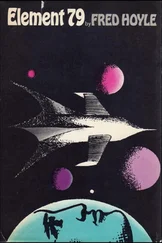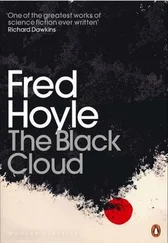Fleming had a dark, thoughtful face which was less surly than preoccupied; but he seemed tired and bitter. He grumbled away in a thick Midland accent.
“Oh yes—the Official Opening! All the coloured lights will be working. The stars will sing ‘Rule Britannia’ in heavenly chorus, and I’ll be round at the pub.”
“You’ll be here, John, I hope.” The Professor sounded slightly irritated. “Meanwhile, perhaps you’d show Miss Adamson round.”
“Not if you’re busy,” said Judy in a small, hostile voice.
Fleming looked at her with interest for the first time.
“How much do you know about it?”
“Very little yet.” She tapped her papers. “I’m relying on these.”
Fleming turned wearily to the room and spread an arm wide.
“This, ladies and gentlemen, is the largest and newest radio-telescope in the world—not to say the most expensive. It has a resolution of fifteen to twenty times greater than any existing equipment and is, of course, a miracle of British science. Not to say engineering. The pick-up elements”—he pointed out of the window—“are steerable so as to be capable of tracking the course of a celestial body across the heavens. Now you can tell them everything, can’t you?”
“Thank you,” said Judy icily. She looked at the Professor, but he seemed only a little embarrassed.
“I’m sorry we worried you, John,” he said.
“Don’t mention it. It’s a pleasure. Any time.”
The Professor turned his kindly general-practitioner’s attention to Judy.
“I’ll show you myself.”
“You do want it operating by Thursday, don’t you?” said Fleming. “For His Ministership.”
“Yes, John. It’ll be all right?”
“It’ll look all right. The brass won’t know if it’s working. Nor the news touts.”
“I should like it to be working.”
“Yeh.”
Fleming turned away and walked back to the control desk.
Judy waited for an explosion, or at least some sign of affront, from the Professor, but he only nodded his head as if over a diagnosis.
“You can’t push a boy like John. You may wait months for an idea. Years. It’s worth it if it’s a good one, and it generally is with him.” He looked wistfully at Fleming’s receding back: sloppy, casual, with untidy hair and clothes. “We depend on the young, you know. He’s done all the low-temperature design, he and Bridger. The receivers are based on low-temperature equipment and that’s not my subject. There’s a hand-out on it somewhere.” He nodded vaguely at her bundle of papers. “We’ve run him a bit ragged, I’m afraid.”
He sighed, and took her off on a conducted tour of the building. He showed her the wall photographs of the night sky, telling her the names and identity of the great radio stars, the main sources of the sounds we hear from the universe. “This,” he explained, pointing to the photographs, “is not a star at all, but two whole galaxies colliding; and this, a star exploding.”
“And this?”
“The Great Nebula in Andromeda. M.31 we call it, just to confuse it with the motorway.”
“It’s in the Andromeda constellation?”
“No. It’s way, way out beyond that. It’s a whole galaxy in itself. Nothing’s simple, is it?”
She looked at the white spiral of stars and agreed.
“You get a signal from it?”
“A hiss. Like you heard.”
Near the wall was a large perspex sphere with a small dark ball at its centre and other white ones set around it like the electrons in a physicist’s model of the atom.
“Jacko’s spheres!” The Professor twinkled. “Or Jacko’s folly, they call it. It’s a display of things in orbit near the earth. All these white units represent satellites, ballistic missiles and so on. Ironmongery. That’s the earth, in the middle.”
The Professor waved it daintily aside.
“A gimmick, I think you’d call it. Jacko thought it would interest our government visitors. We have to keep tabs, of course, on what’s happening near the earth, but it’s a waste of a machine like this. Still, the military ask us to, and we don’t get the sort of money we need unless we can tap the defence budget.” He sounded as though he was being naughty and enjoyed it. He made one of his small, manicured gestures to take in the room and the huge thing outside. “Twenty-five millions or more, this has cost.”
“So there’s a military interest?”
“Yes. But it’s my establishment—or rather, the Ministry of Science’s. Not your Ministry’s.”
“I’m on your staff now.”
“Not at my request.” His manner stiffened, as it had not done when Fleming was rude to him; Fleming, after all, was one of his own.
“Does anyone else know why I’m here?” Judy asked him.
“I’ve told no-one.”
He steered her away from the subject and into the other room, where he went carefully over the receiving apparatus and the communications equipment.
“We’re simply a link in a chain of observatories all round the world, though not the weakest link.” He looked around with a kind of pure pleasure at the switchboards and wires and racks of equipment. “I didn’t feel an old man when we started to put all this together, but I do now. You have an idea and you think: ‘That’s what we must do’, and it just seems the next step. Quite a small step, possibly. Then you start: design, research, committees, building, politics. An hour of your life here, a month there. Let’s hope it’ll work. Ah, here’s Whelan! He understands all about this part of it.”
Judy was introduced to a pasty-faced young man with an Australian voice who held on to her hand as though it was something he had lost.
“Haven’t we met before somewhere?”
“I don’t think so.” She stared at him candidly with large blue eyes, but he would not be put off.
“I’m sure of it.”
She wavered and looked around for help. Harries, the cleaner, was standing across the room, and when she looked at him he shook his head very slightly. She turned back to Whelan.
“I’m afraid I don’t remember.”
“Maybe at Woomera....”
The Professor piloted her back into the main control-room.
“What was his name?”
“Whelan.”
She made a note on her pad. The party at the control desk had split up, leaving only one young man who was sitting in the duty engineer’s seat checking the panels. The Professor led her across to him.
“Hallo, Harvey.”
The young man looked up and half rose from his seat.
“Good-evening, Professor Reinhart.” At least he was polite.
Judy looked out of the window to the great piece of gadgetry beyond and the empty moorland and the sky, now growing dark purple.
“You know the principle of the thing?” Harvey asked her. “Any radio emission from the sky strikes the bowl and is reflected to the aerial, and received and recorded on the equipment in there.” He pointed through the glass partition.
Judy did not look for fear of seeing Whelan, but Harvey—keen, dogged and toneless—was soon directing her attention to something else. “This bank of computers works out the azimuth and elevation of whatever source you want to focus on to it and keeps it following. There’s a servo link arrangement....”
Eventually Judy managed to escape to the hall and have a moment alone with Harries.
“Get Whelan moved,” she said.
She had left her suitcase at the hotel in the town and driven on up the hill with very little idea of what to expect. She had visited a good many service establishments and served as security officer in a number of them, from Fylingdales to Christmas Island. Whelan, she knew, had met her on a rocket range in Australia. She had worked with Harries on a tour of duty at Malvern. She did not think of herself as a spy, and the idea of informing on her own colleagues struck her as an unpleasant business; but the Home Office had asked for her, or at least for someone, to be transferred from the Ministry of Defence security section to the Ministry of Science, and an assignment was an assignment. Before, the people she worked with had always known what she was, and she had thought of her duty as protecting them. This time they themselves were suspect and she was to be palmed off on them as a public relations stooge who could nose around and ask questions without putting them on their guard. Reinhart knew, and disliked it. She disliked it herself. But a job was a job and this—she was told—was important.
Читать дальше












